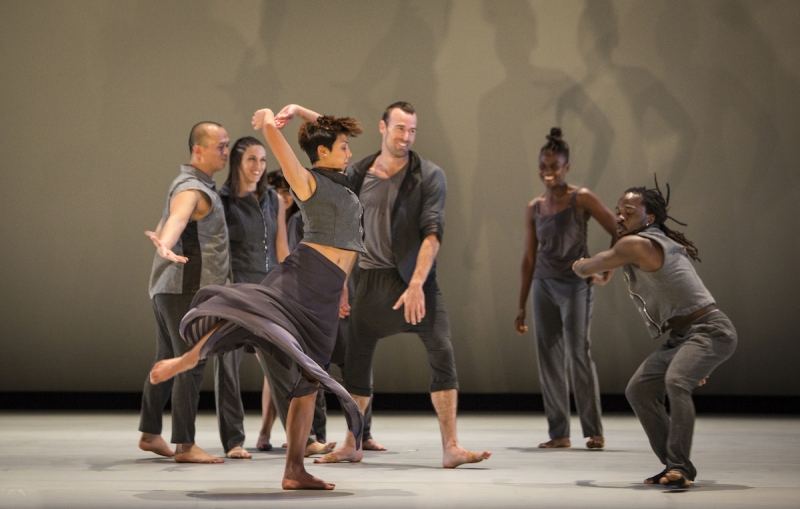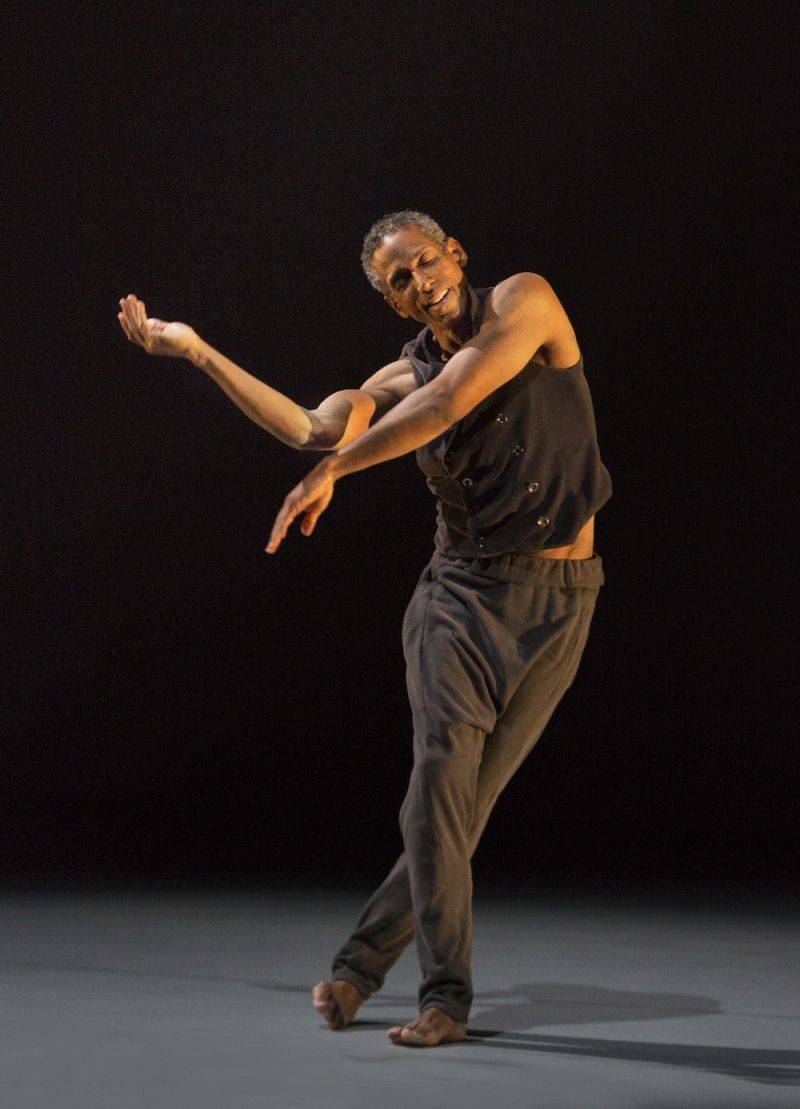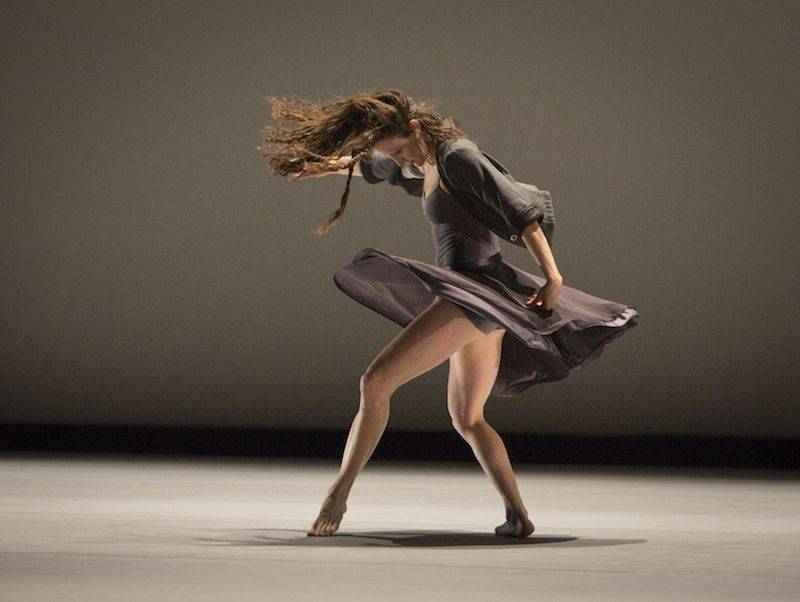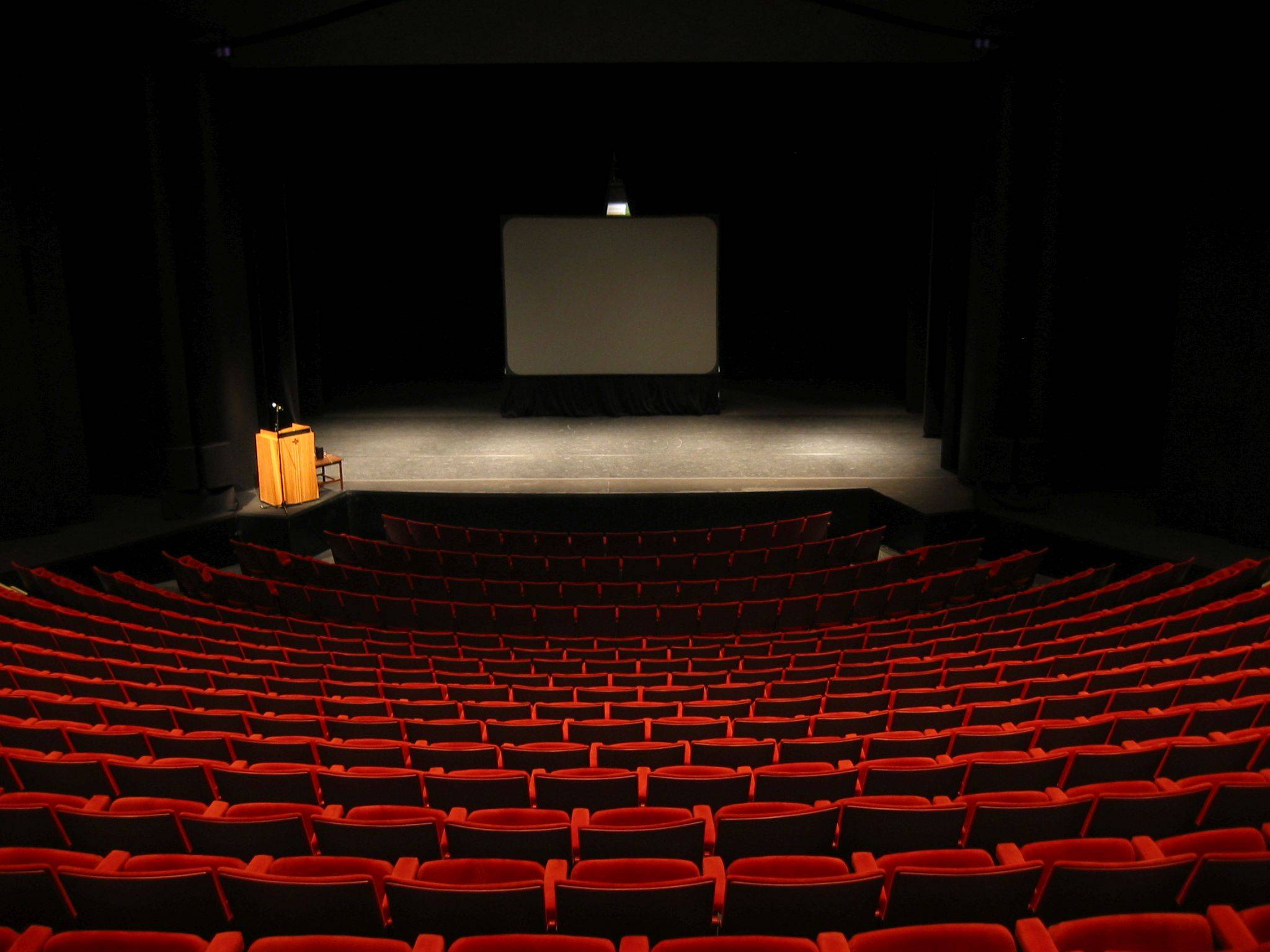There’s a woman stretching in the wings, I’ve turned off my phone, and the show is about to start. As with most events I attend at The Krannert Center, I’ve done no background research on what I’m about to see. The only thing I know is “something with Nat King Cole…and dancing or music or…?” I like it that way. There are no expectations when I sit down. What I’m about to experience is pure.
When I was in college, I took several courses on adolescent literature and literacy from one particular professor. She opened my mind to a whole different perspective on language arts and reading. I don’t like to say anything “changed my life” because life is, inherently, experience and change. The cup of coffee I had at breakfast technically “changed my life.” It’s a hollow thing to say. This professor guided my academic mind to a place that accepted a variety of communication, whether it be a peer reviewed study or a text message on an iPhone, as valid in some already existing context. A student who says “I been to there” is expressing a complete thought, in an existing grammatical structure, in a consistent manner across time. I learned, through this professor, that to say otherwise is a deliberate attempt to misunderstand that student’s meaning and invalidate her expression. Telling a child the way she speaks at home -the way her elders speak- is wrong is detrimental and false.
Those classes helped me accept what I was about to see.

photo by Yi-Chun Wu
As the lights fade, I hear crickets and the dinging sound of a text. There are people, similarly dressed, walking out onto the stage. The projection on the upstage wall reads something like “Who b at this #?” and continues to tell whoever is reading it that the sender will just keep talking. As the story unfolds, we learn that the sender is a gay, black teen who lives in an urban area with his grandfather. This young man can’t cry. He’d like to but he just can’t. After he stabs another student in the lunch room, our hero is sent to a school therapist. The more this young man talks, the more I am reminded of The Perks of Being a Wallflower and The Color Purple. A thoughtful, sensitive person is reaching out into the darkness to tell their story to someone who they hope will understand and love them.
The projection reads Thank u 4 listen and I quietly start to cry. Several seconds go by. There is a blank screen in response.
As the text slows down, the performers on stage become more active. They play out cafeteria confrontations, dance battles, and intimidation rituals. There is hip hop (I think I’m categorizing it correctly) and Nat King Cole. “Nats Kings,” as our young narrator calls him, is a sacred little something between him and his grandfather. The dancers perform ballet pieces fused with jazz and modern dance that make me wish I’d chosen ballet instead of the violin. Their bodies are instruments and they are finely tuned. I’m astonished at their skill. They transfer from one style to another seamlessly, with grace and strength. They use their bodies to take on real characters and mere bits of consciousness from this young man’s mind.
He is told he shouldn’t say n****r. It’s an ugly word. He wonders how someone can tell him he can’t say n****r when he is one. And I’m reminded of my classes. I remember the dilema of language and ownership. It’s a tricky one.
One striking bit in a dancer-heavy portion was what I think of as “the screaming game.” A female performer coaxes another into coming downstage center to tell a fun little secret. When her playmate finally comes down to meet her, she leans in slowly…and lets out a blood freezing scream. It’s the kind you hear when someone is about to get stabbed in a movie. The other woman jumps back. She’s rattled and then amused. Intrigued. She gives it a shot. She screams at top volume, arms stretched out behind her back, with her face hurtling toward her friend/foe. They go back and forth, taking turns, laughing and screaming at each other’s heads. The screams turn into a magical kiss -their mouths are ever closer and the sound mingles in both of their mouths. The second woman laughs on the floor, turned away to guffaw, and the first sneaks away, back to her spot in the ranks on stage. This laughing woman, the one who was pulled down into this game, is in ecstasies. She composes herself, stands up, whirls around, and lets out a final screech to the empty air. Her primal yawp dies in a trail of embarrassment, confusion, and betrayal. She is standing alone. The magic is gone.
Our dear young man searches for love in Big Man D, to whom he declares his “romantix” feelings, despite being told that God hates him for being gay. His declaration is answered with a fist to the mouth, which knocks out his two front teeth, and he walks away with “the best part of [his] smile in his pocket.” From one tragic experience to the next, the young man’s feelings of unworthiness only grow. He talks to his therapist at school and is visited by his grandfather over Skype, in his dreams. He sends texts to a mysterious benefactor, some benevolent figure (Is it “mr. god”? Or is it someone in “Innernet land”?) in hopes that they will listen to and love him.

photo by Yi-Chun Wu
In the beginning of a quiet moment, a woman and a man are birds center stage. They puff up their chests, squawk, and bump into each other in an aggressive dance. It’s a challenge. They are goaded by the remaining performers -eight others in all. When the hen scares away the rooster, she is left alone center stage. The music begins to spill over and around us as her body melts into a liquid. She is no longer the jerking, frenzied chicken. She is a woman. Nat King Cole’s thick, creamy voice spreads over everything. I am transported to my grandmother’s car. Grandma Connie had Amy Grant (or something equally unappetizing) and Nat King Cole for the car’s CD player. I was obsessed. I loved Cole’s voice. I knew it was magical and I fantasized about having the same power he possessed. For our young hero, “Nats Kings Cole” is what ties him to his grandfather.
The young man goes to an art museum. He sees “van gos” for the first time. The projection reads SNAP that just how life feel. In another moment, a kid from the neighborhood says pigeons are dirty. Projection: pigeons b beautiful pigeons can fly At the urging of his therapist, he gets a hamster through an app on his phone. He dotes on it night and day. Projection: pets loves u uncondishon
And then his grandfather dies.
A performer is trashing, beating, pumping on the floor. Her breath is rhythmic but labored, loud, and dangerous. The hazy part of me –the nagging part that is always conscious of the fact that a performer is just that- is wondering how she’ll continue in this pattern until she passes out. She’s hyperventilating. A spike of recognition goes through me and I think, “This is what a panic attack feels like.”

photo by Yi-Chun Wu
Our young boy is sent to a foster home, to Mr. Collins. Projection: I try b good so he love me. And I am beside myself. He listens to music with his foster father -he calls the singer an angel. Then, one night, this man steals into his room and rapes him. Our boy wonders how someone who has listened to angels with him could do this. I wonder myself.
Our young friend stops believing in mr. god and starts praying to Innernet land. No one responds but there are people out there, listening.
Big Man D sends our hero a Facebook message to apologize and ask him out to dinner. Projection: DOPE!!!!!! I feel dread, like a rock, in my stomach. After the young men eat burgers and fries, they walk home. Big Man D attacks the young man and tries to rape him. He protects himself by fading out. Blocking. Leaving his body behind. When he comes to, he starts to fight back. He bites Big Man D’s tongue. There is a struggle. Big Man D picks up a brick and bashes our young man in the head.
Granpa is there. Granpa is right there and all is peaceful. Projection: Dear innernet land: plz believe, K? And this dear young man is finally able to cry. He ends with a smiley face.
I am on my feet before the lights come up.
From The Krannert Center for the Performing Arts: Guggenheim and National Endowment for the Arts fellow, choreographer, writer, and director David Roussève juxtaposes the intimate romanticism of Nat King Cole standards with the rough-edged, hip-hop-inflected original music of d. Sabela Grimes to redefine the coming-of-age story for the electronic age.
Developed in part through Krannert Center’s Intensive Development Lab project funded by The Andrew W. Mellon Foundation, Stardust explores the evolving nature of intimacy in our technology-driven, furiously paced world.
Co-commissioned by the Clarice Smith Performing Arts Center at the University of Maryland, Krannert Center, and Peak Performances at Montclair State University. Stardust was made possible by the New England Foundation for the Arts’ National Dance Project, with lead funding from the Doris Duke Charitable Foundation and additional funding from The Andrew W. Mellon Foundation, the Met Life Foundation, and the National Endowment for the Arts. Additional funding provided by the Center for Cultural Innovation, the University of California Institute for Research in the Arts, and the UCLA Faculty Research Grants program.








